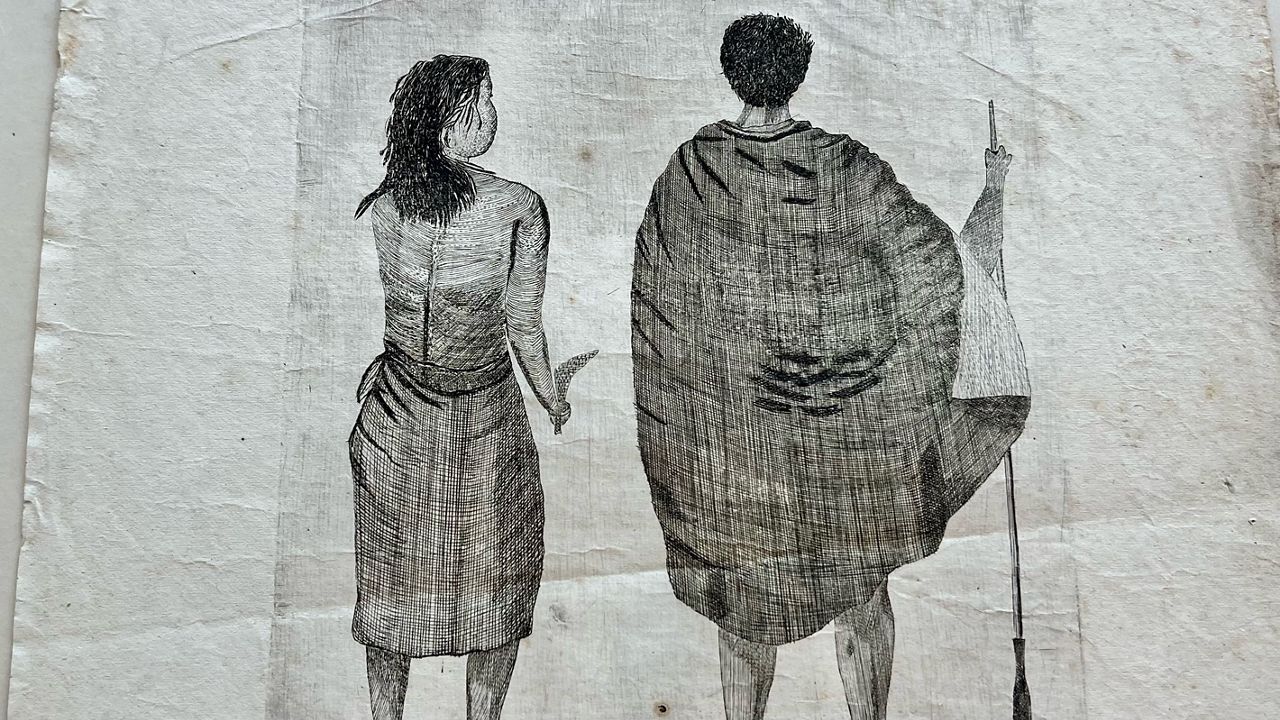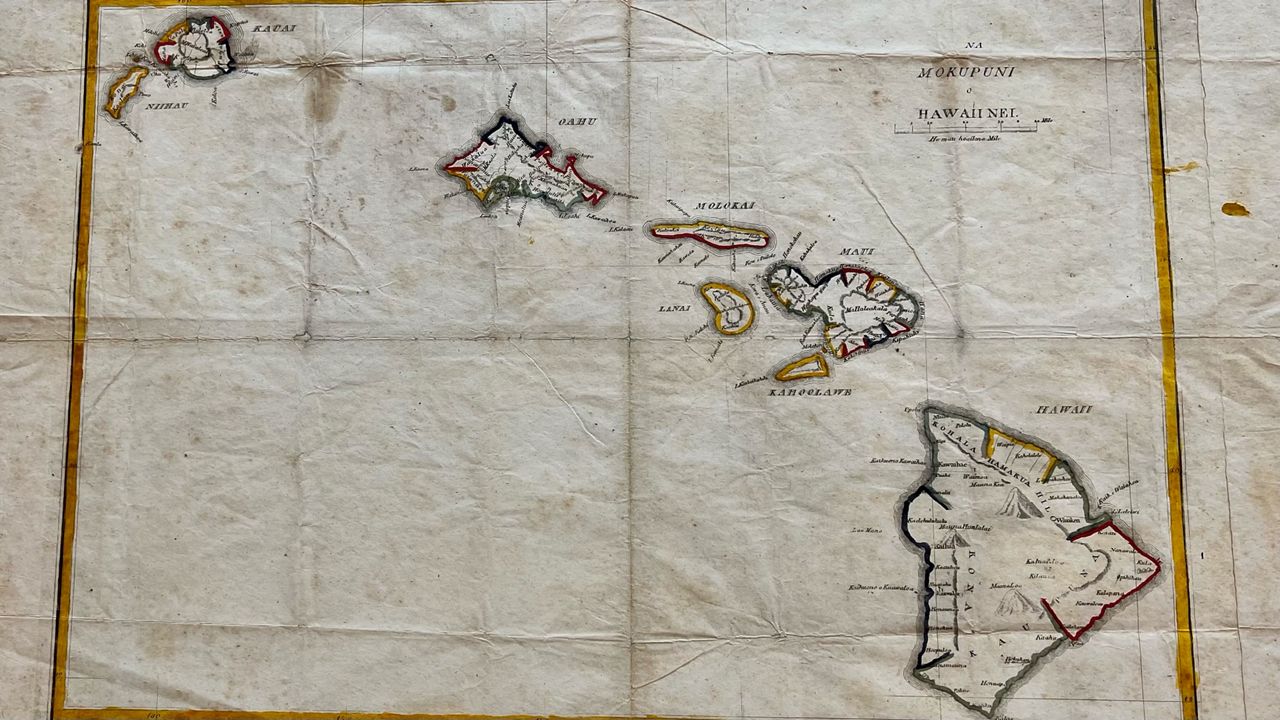WORCESTER, Mass. – After wildfires devastated the town of Lahaina and other parts of Maui, preserving and sharing the Hawaiian collection at the American Antiquarian Society in Worcester has taken on a greater importance.
The collection includes printed materials from Lahaina and other parts of Maui, such as laws and health manuals, maps, newspapers and prints of local landscapes dating to the 1800s.
Curator of books and digital collections Elizabeth Watts Pope said they’re fortunate to be one of the organizations helping to preserve this history.
“Right now, there are fires in Hawaii and that has caused loss of cultural material,” Watts Pope said. “We won’t know the full extent presumably for some time perhaps, but having material in multiple places is one of the benefits of print, and AAS is happy to be one of the places that these materials can be preserved.”

The wildfires on Maui, the cause of which is still under investigation, are the deadliest wildfires the U.S. has experienced in over a century. More than 100 people have been confirmed dead, and Lahaina was almost completely destroyed.
Watts Pope said a lot of the material in the AAS collection came from missionaries who arrived in Hawaii from central Massachusetts and other parts of New England. The missionaries, along with native Hawaiian missionaries they were traveling with, brought a printing press with them to the islands, where they worked together with Hawaiians living on the island to create the prints.
“They started printing in 1822, and in just those first two decades, I think it’s 30 million pages, some unbelievable number of pages were printed,” Watts Pope said. “A lot of that was used by people on the islands, a lot of that was preserved by people on the islands.
“But some of that material came often through missionary hands or through other U.S. people who were on the islands who brought material here to New England, and that material was donated to AAS. So, these are original items from Hawaii, but they were printed in multiple copies to begin with.”
The missionaries sent home some copies of the materials they printed to New England to help preserve them. Watts Pope said everything in the collection is a copy of prints kept in Hawaii, and the AAS in the past has partnered with organizations on the islands to conduct research and preserve the materials.

The Hawaiian collection is open to the public, allowing those who may not be able to travel to Hawaii the ability to interact with primary source materials. Watts Pope said she hopes their collection can help make sure Maui’s history is remembered and available to all.
“This material is so important because it helps connect the Hawaiian people of today with the Hawaiian people of 1820 and before,” Watts Pope said. “To be even a small part in that chain of connection and of being a place that people can come back to and continually come back to, especially if they are suffering in their home area if material is being destroyed, it’s an honor to be able to be just a small part of that process of connection.”



